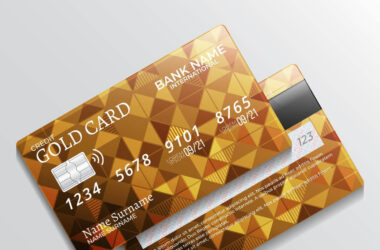When it comes to managing money in Nigeria, it is important to understand the different types of accounts available and how they work. One common type of account is the domiciliary account, which is denominated in foreign currencies such as USD, GBP, and EUR. Another type of account is the naira account, which is denominated in the local currency, the Nigerian naira.
Transferring money between these two types of accounts may seem daunting, but it is a straightforward process that can be easily mastered. In this article, we will provide a detailed guide on how to transfer money from a domiciliary account to a naira account. Whether you are looking to convert your foreign currency to naira or need to transfer funds for a purchase, this guide will provide you with all the information you need to complete the transfer successfully.
Requirements for Transferring Money from Domiciliary Account to Naira Account
Before you can transfer money from a domiciliary account to a naira account, there are a few requirements that you need to fulfill. These requirements include:
- Valid domiciliary and naira account: You must have valid and active domiciliary and naira accounts with your bank. If you don’t have one or both of these accounts, you will need to open them before you can proceed with the transfer.
- Access to online banking or visit to bank branch: You will need to have access to your bank’s online banking platform or visit the nearest branch to initiate the transfer. If you don’t have online banking set up, you will need to visit the bank branch in person to complete the transfer.
- Sufficient funds in domiciliary account: You must have sufficient funds in your domiciliary account to cover the amount you want to transfer, as well as any fees and exchange rates that may apply.
- Knowledge of exchange rates and fees: It is important to have an understanding of the exchange rates and fees that apply to your transfer. Exchange rates can fluctuate daily, so you should check the current rate before initiating the transfer. Your bank may also charge fees for the transfer, which can vary depending on the bank and the amount being transferred.
Steps for Transferring Money from Domiciliary Account to Naira Account
Step 1: Log in to your online banking platform or visit your bank’s nearest branch.
To initiate the transfer, you need to log in to your online banking platform using your login credentials or visit your bank’s nearest branch to complete the transaction in person.
Step 2: Navigate to the section for transferring funds or making payments.
Once you have logged in, navigate to the section for transferring funds or making payments. This section may be labeled differently depending on your bank, but it should be easily identifiable on the online banking platform.
Step 3: Select the option to transfer funds from your domiciliary account to your naira account.
Select the option to transfer funds from your domiciliary account to your naira account. This option may be listed under “internal transfers” or “interbank transfers” depending on your bank’s online banking platform.
Step 4: Enter the amount you wish to transfer, the account number of the naira account, and any other necessary information.
Enter the amount you wish to transfer, the account number of the naira account, and any other necessary information such as the reason for the transfer.
Step 5: Review the transaction details to ensure they are correct, including the exchange rate and any applicable fees.
Before confirming the transfer, review the transaction details to ensure that they are correct, including the exchange rate and any applicable fees that your bank may charge.
Step 6: Confirm the transfer by entering your banking password or providing any other required authentication.
Once you have reviewed and verified the transaction details, confirm the transfer by entering your banking password or providing any other required authentication.
Step 7: Once you have confirmed the transfer, you will need to wait for it to be processed. The time it takes for the transfer to be completed may vary depending on your bank’s policies. However, most transfers are completed within a few minutes to a few business days.
Tips and Considerations for Transferring Money from Domiciliary Account to Naira Account
Transferring money from a domiciliary account to a naira account is a relatively simple process, but there are a few tips and considerations that you should keep in mind to ensure that the process goes smoothly. These tips include:
1. Check Exchange Rates and Fees Beforehand to Avoid Surprises
Before initiating a transfer, it is important to check the exchange rate and any fees that may be charged by your bank for the transaction. This will help you avoid any unexpected surprises and enable you to plan accordingly.
2. Consider the Timing of the Transfer to Maximize Exchange Rates
Exchange rates fluctuate constantly, so it is important to consider the timing of your transfer to ensure that you get the best rate possible. You can do this by monitoring exchange rates and choosing a time to transfer when the rate is favorable.
3. Double-Check Account Numbers and Other Transaction Details Before Confirming
It is essential to double-check all transaction details, including the account number of the naira account and the amount you wish to transfer. This will help you avoid sending the funds to the wrong account or transferring an incorrect amount.
4. Contact Your Bank’s Customer Service if You Encounter Any Issues
If you encounter any issues during the transfer process or have any questions, don’t hesitate to contact your bank’s customer service for assistance. They can help you resolve any issues quickly and efficiently.
Access Bank’s Transfer Methods You Can Use
1. AccessAfrica
AccessAfrica is a payment solution that simplifies global payments for P2P, B2B, P2B, G2P, and other payment activities. It allows customers to initiate payments in local currency or USD, and beneficiaries receive funds in local currency or USD. AccessAfrica focuses on Africa and has transfer corridors to several countries worldwide. Features include sending and receiving in local currency or USD, affordable transfer fees, near-instant payments, and availability to Access Bank customers and non-account holders.
2. PaySend
Paysend is an online card-to-card transfer service that provides a fast, secure, and low-cost alternative for sending money to friends and family in Nigeria. With Paysend, individuals can easily send funds from their bank accounts or bank cards to a recipient’s card or account. The service is designed to be efficient and cost-effective, providing a convenient way for people to transfer money quickly and easily.
Additionally, Paysend offers highly competitive interest rates on available balances, payable monthly, which means the more you save, the more you earn. Whether you’re sending funds to help out a loved one or paying for a service, Paysend is a great option for anyone looking for a hassle-free, secure way to transfer money to Nigeria.
3. Ria Transfer
Ria Transfer is an international money transfer service that offers fast, secure, and low-cost transfers. With Ria, you can receive funds directly into your Access Bank account or collect them over the counter at any Access Bank branch. The service offers convenience and ease for both senders and beneficiaries, making it a popular choice for those who need to transfer money quickly and reliably.
To receive payments, beneficiaries will need to provide their PIN, expected amount, acceptable means of identification, sender’s name and address, and receiver’s name, address, and phone number. With Ria, you can trust that their money will be delivered safely and efficiently.
4. Western Union
Western Union and Access Bank have partnered to offer an innovative service called Account Based Money Transfer (ABMT) that allows you to receive funds directly into your Access Bank account through the Bank’s Internet banking platform. This service is fast, secure, and a low-cost alternative to traditional money transfer methods.
To receive payments, you need to provide the Money Transfer Control Number (MTCN), expected amount, acceptable means of identification, receiver’s name, address, and phone numbers. Additionally, for sending payments, you need to provide your name, phone number, address, receiver’s name and country, amount in Naira, verified BVN, test question and answer (if applicable), and a maximum send limit of 1,000USD Naira equivalent per customer per quarter, as stipulated by the Central Bank of Nigeria. With Western Union and Access Bank, sending and receiving payments has never been easier or more convenient.
Read: What is Savings Account?
5. Moneygram
MoneyGram is a popular electronic funds transfer service that allows individuals to send and receive money from over 200 countries and MoneyGram Agent locations worldwide. The service is fast and convenient, and funds can be received as cash or directly into an account. To receive payments, the recipient must provide a reference PIN, expected amount, acceptable means of identification, receiver’s name, address, and phone number.
To send payments, the sender must provide their name, phone number, address, the receiver’s name and country, amount in Naira, verified BVN, and test question and answer where applicable.










